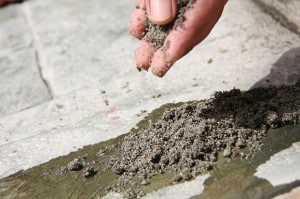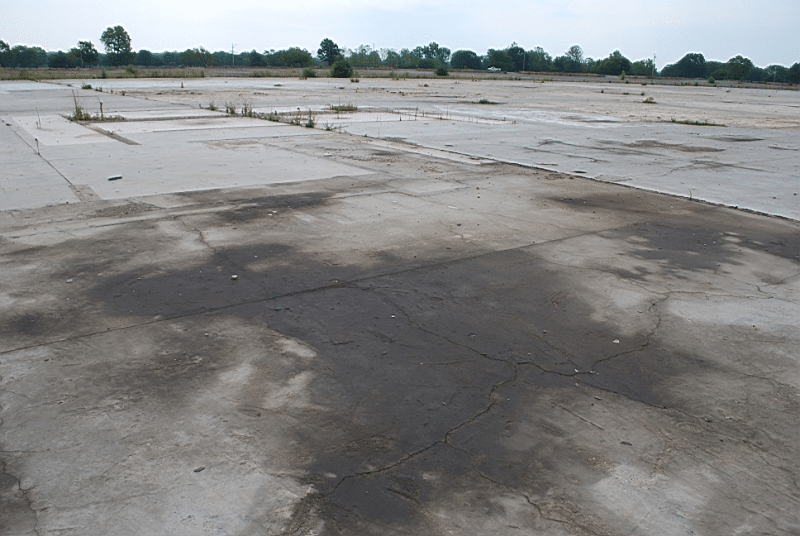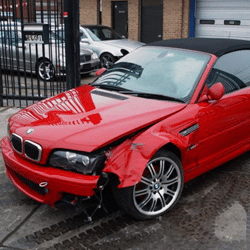Getting rid of those car oil drips and old oil stains can be quite challenging, especially if they have already created unsightly marks on your driveway. If you are on the lookout for some proven techniques on how to deal with car oil drips or remove oil stains permanently, we have what you need below.
Let’s get started and remove all those stubborn stains, shall we…
Fresh Car Oil Drips
If you encountered fresh car oil drips on the surface of your driveway or pavement, all you need to do is go over to your kitchen and look for baking soda. Scatter a numerous amount of baking soda on top of the car oil drips, let it stand there for 20 minutes and come back later to sweep whatever residue is left.
In case you run out of baking soda, check if you have leftover sawdust from your DIY furniture projects and again, follow same procedure by applying directly the sawdust on the car oil spot and sweep afterwards.
Find Car Oil Stains
In the event you don’t know exactly where the car oil stains are located, the best weapon to easily locate them is with the use of a garden hose. If you are targeting the entire driveway or garage, then spray water all over the place.
 Why? We all know from our science class that when oil is combined with water, oil separates and you can instantly notice it when wet. Once you are done spraying, walk closely on the wet area and put a mark over the stain discovered. You can use rocks or anything solid as markers. Now, after identifying the car oil spots, wait for the area to dry, then proceed with your mission of getting rid all those oil drips.
Why? We all know from our science class that when oil is combined with water, oil separates and you can instantly notice it when wet. Once you are done spraying, walk closely on the wet area and put a mark over the stain discovered. You can use rocks or anything solid as markers. Now, after identifying the car oil spots, wait for the area to dry, then proceed with your mission of getting rid all those oil drips.
Litter or (K-Sorb) is commonly used in removing old oil stains. Again, scatter a reasonable amount of the litter on the targeted spot. Be sure the oil stain is completely covered and let it stand there for one hour, then sweep thoroughly. Repeat this procedure if you still notice remaining car oil drips. Another method you can do to remove old oil stains is using hot water and any dishwashing or laundry detergent product. Fill a bucket with hot water, stopping only when you reached half way of the container and combine the dishwashing or laundry detergent and stir well.
Next step, pour the mixture on the targeted spots and with the use of a tough bristled-brush scrub the area with all your strength. Never use a wire brush for scrubbing because some bristles might fall off during the process, get rusty and leave unsightly rust stain on the driveway. Finish the procedure with a good rinse of clean water.
Stubborn Car Oil Drips
If you have stubborn car oil stains that cannot be removed with the above methods, your final solution is the use of a concrete grinder. If you don’t have a concrete grinder, ask your neighbor if he/she has one and borrow it or better rent one. Before you even attempt using this high-powered tool, make sure you wear protective eyewear to protect your eyes against dust particles being blown in the air while grinding the car oil stains. Be sure to grind only the top and not the whole surface. Lastly, cover the grinded areas with cement patch.

Other effective measures to prevent car oil drips or stain from happening in the near future
Buy a big oil absorbent engine drip pad from your local auto-dealer shop where you could park your car. This protective cover is very efficient is absorbing any oil drips from your car.
Use oxygen bleach if you want to deal with car oil drip or oil stain problem the natural way. Just follow the instruction on the product on how to mix it and place the mixture inside a sprayer. Spray generous amounts on the targeted spots and leave for 20 minutes. Rinse it with water and repeat the process if you still notice car oil marks left on the driveway.
Try using soda like a can of Coke. Pour the liquid directly on the car oil stains and leave overnight. The next day, with the help of a top-performing brush, hot water and soap, scrub the area and rinse it with water.
There you have it some good techniques to help you remove old oil stains and prevent future car oil drips from messing your driveway. If you have found a new approach to fight this problem feel free to share it with us. We welcome new ideas.




 Follow
Follow

